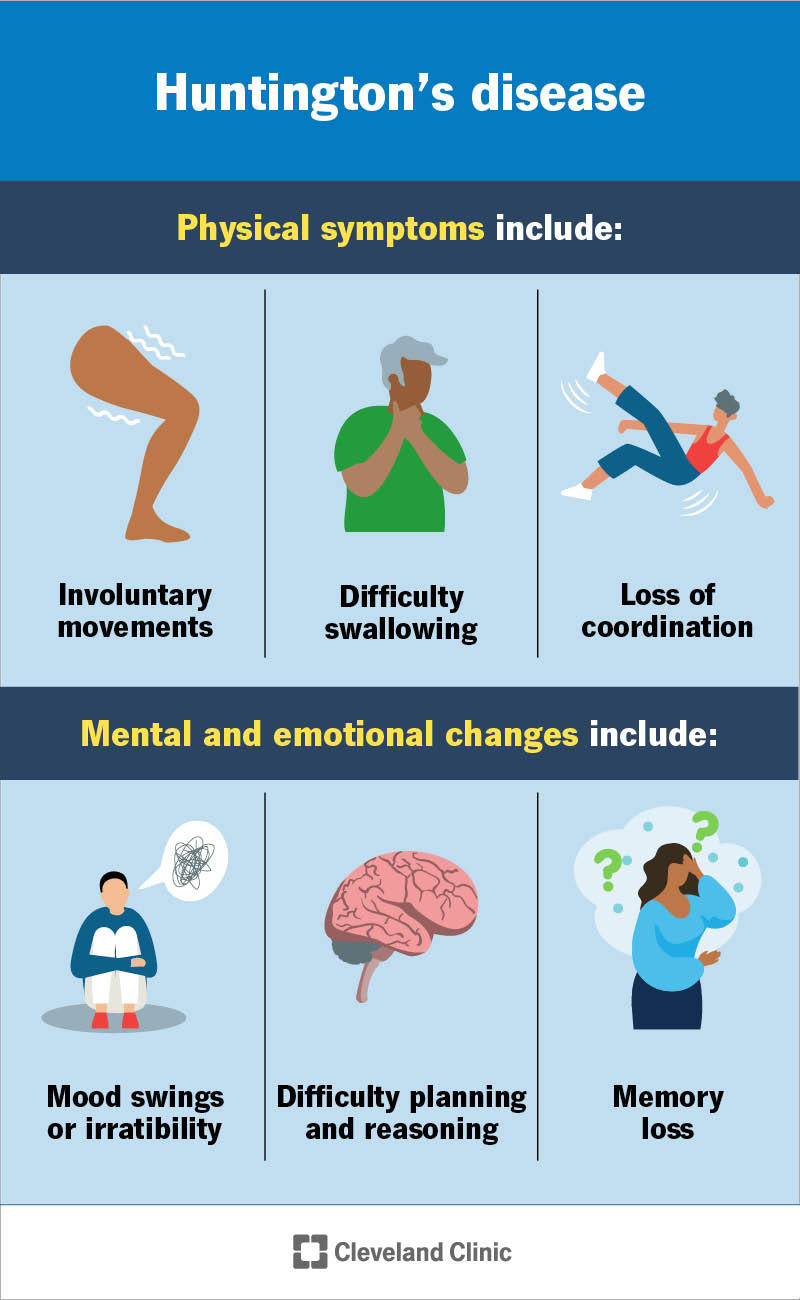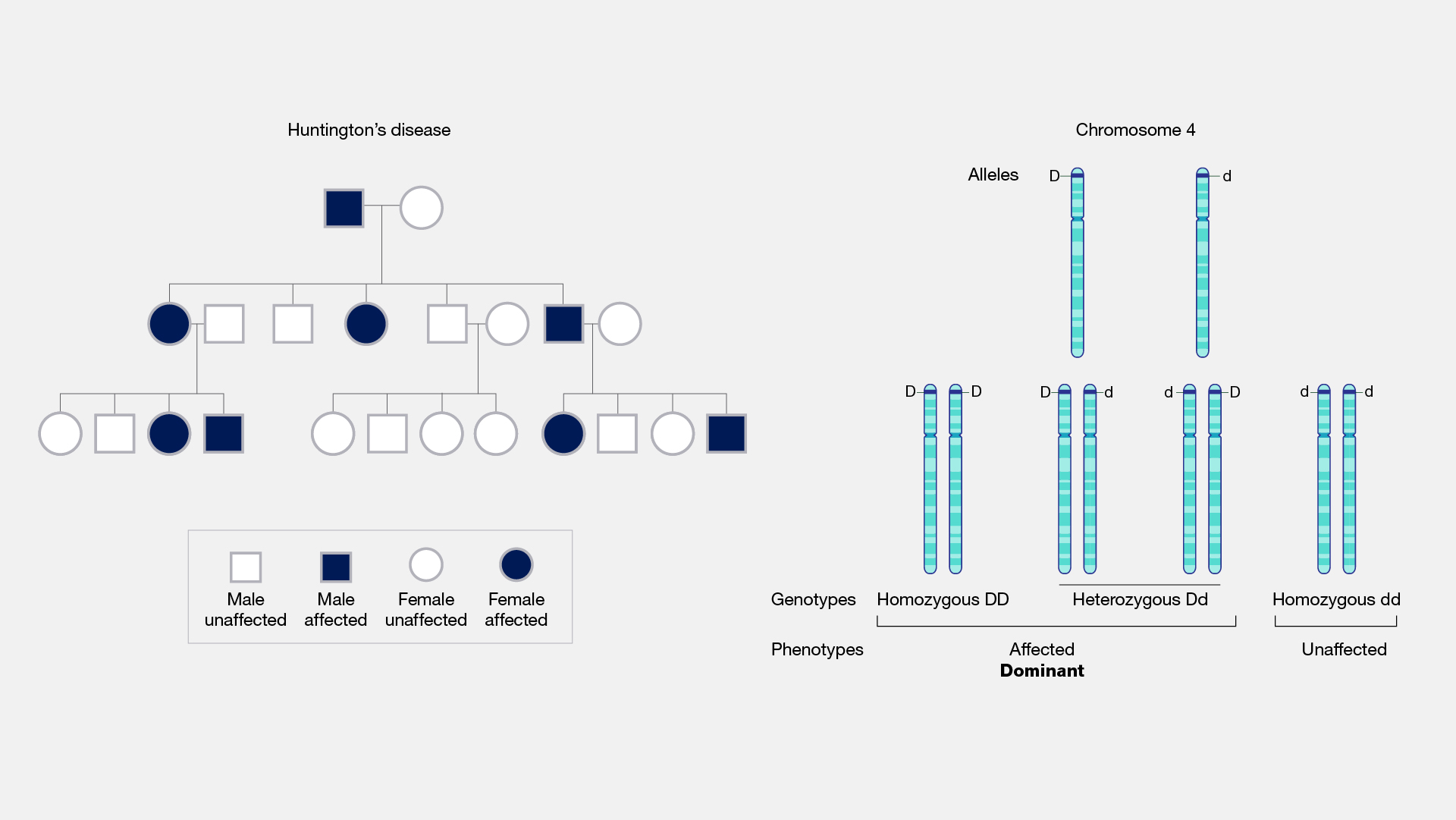The Worst Disease You've Never Heard Of
 |
| Retrieved from: https://my.clevelandclinic.org/health/diseases/14369-huntingtons-disease |
Alzheimer's Disease
Parkinson's Disease
ALS
Schizophrenia
Those four diseases are some of the most serious and worst diseases known to man. Personally, there is one that I like to think trumps them all...
HUNTINGTON'S DISEASE
Huntington’s Disease (often referred to as Huntington’s or HD) is a rare, terminal, hereditary neurodegenerative disorder. The easiest way to describe it is to say it is almost equivalent to having Alzheimer’s Disease, Parkinson’s Disease, ALS, and Schizophrenia simultaneously. I say “almost equivalent” because for some sciency-biologyish way, not everyone experiences the disease process the same way. In the next few paragraphs, I’ll take a little bit of a deeper dive into Huntington’s - I have extensive personal experiences with it, so I consider myself a bit of an expert.
Huntington’s is rare. The World Health Organization classifies a disease as “rare” when the occurrence is fewer than 65 in 100,000 people, or 0.065 % of the population is affected by it. According to the Huntington’s Disease Society of America, approximately 41,000 Americans have HD symptoms, with more than 200,000 Americans considered “at risk”. These numbers put Huntington’s Disease into rare disease criteria, and this status is recognized worldwide.
Huntington’s is terminal. Huntington’s Disease is an incurable disease. There is no way to slow down or stop the progression of symptoms. There are some medications to help with the management of symptoms. There is tons of research being done on symptom management and hopefully a cure, one day.
Huntington’s is hereditary. Hereditary is an alternative way of saying that Huntington’s is genetic. This section gets quite wordy, so the TLDR (too long, didn’t read) is - every child of a parent that has Huntington’s, has a fifty-fifty chance of also having it. Now, for the wordy explanation which is my favourite part.
Everyone has a gene called huntingtin [HTT} which codes for a protein also called huntington [Htt]. This protein is essential, but it really isn’t quite known what it actually does. In those with Huntington’s Disease, the gene is mutated - it doesn’t function as it should, and it is labelled as mHTT. The mutated gene causes a production of a mutant huntingtin protein, referred to as mHtt. This mutated gene is autosomal dominant, meaning you only need one mutated portion of a gene to have the mutated gene. This means every child “at risk”, meaning they have a parent with the genetic mutation, has a fifty-fifty chance of inheriting the genetic mutation.
 |
| Retrieved from: https://www.genome.gov/genetics-glossary/Autosomal-Dominant-Disorder |
Huntington’s is neurodegenerative. Neurodegenerative can be broken down in order to understand what it means. *Thank you Mrs. Gilmour, for making sure I knew about root words and giving me an easier way to find out what words mean! First, “neuro” means that it pertains to the nervous system - specifically brain and nerve tissue. Second, “degenerative” is defined as the progressive breakdown of organs and tissues when pertaining to diseases. In short, neurodegenerative means that Huntington’s causes the progressive breakdown of brain and nervous tissue. The breakdown of this tissue is caused by the mutant huntingtin protein [mHtt]. This mutated protein is overproduced and builds up in the brain.
Symptoms of Huntington’s Disease usually fall into three categories - physical, cognitive, and psychiatric. Physical symptoms typically include issues with balance, uncontrollable movements (called chorea), and gradual weight/muscle loss. Cognitive symptoms of Huntington's include memory problems, difficulty concentrating, problems multitasking, and impaired judgement/reasoning. Psychiatric symptoms of HD include depression, mood swings, irritability, and disorientation/confusion. There are so many symptoms that could be included, but this is just an introduction. For more, you can always visit: NIH Huntington's Disease
There is so much that I could say about Huntington's Disease and how horrific of a disease it is. I hope this provides a small introduction to Huntington's. In future posts, I'll go a little bit more in depth regarding different things.
Thank you so much for reading!
Christian


So, if I'm understanding correctly, someone who has a parent with HD, but who didn't inherit the gene cannot pass it on, right? I know with some genetic diseases you can still carry it and pass it on without actually having the disease.
ReplyDeleteIt depends. The mutated gene DNA has an increase in "CAG" repeats, these repeats are what code for the protein production. There are three ranges that determine whether or not the actual disease with develop. 26 and less is considered "normal", there is no chance of developing disease or passing the mutation down. 27 to 39 is considered a gray area, where there is still the chance of passing the mutation down, but symptom onset would be very late or symptoms would never develop. 40 or more repeats is referred to as full penetrance, meaning symptoms will develop at somepoint and there is a 50-50 chance of passing the mutation down. Surprisingly, the science still isn't down yet and sometimes the mutation pops out of nowhere.
Delete